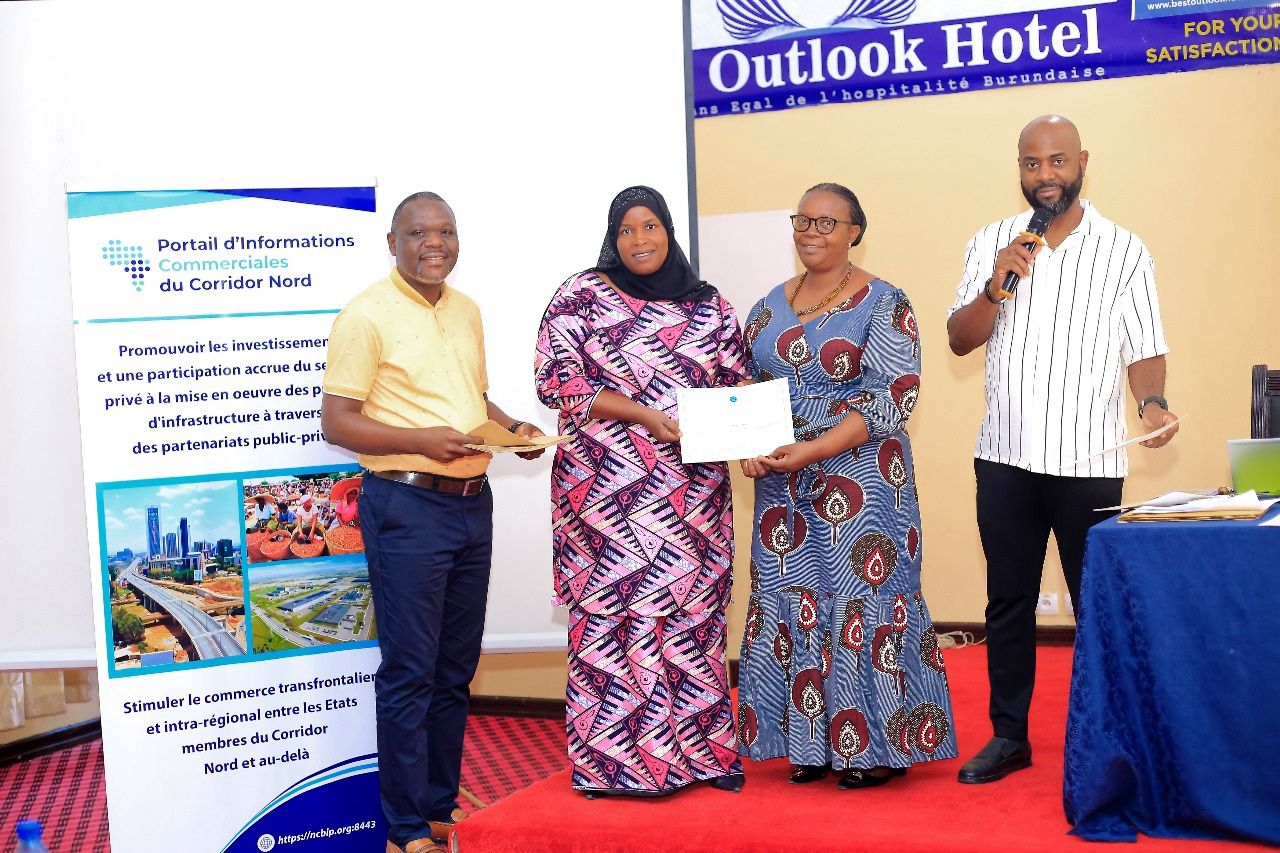Empowering Women and Youth in Cross-Border Trade: Northern Corridor Secretariat Hosts Training in Bujumbura
The Northern Corridor Secretariat successfully conducted the second phase of its capacity-building program for women and youth in cross-border trade from 26th to 28th March 2025 in Bujumbura, Burundi. This initiative was part of a broader effort to promote economic inclusion and empowerment among women and young traders across the region.
Building on the first session held earlier in March in Malaba, Uganda, this phase focused on training 20 women and youth leaders from Burundi and the Democratic Republic of Congo (DRC) through a “training-of-trainers” (ToT) approach. The participants, selected from trader associations and cooperatives, were equipped with skills and knowledge to train over 600 persons within their networks.
The workshop covered a wide range of topics, including entrepreneurship, group dynamics, agricultural product marketing, border procedures, and health and well-being in trade. Experts from the Northern Corridor Transit and Transport Coordination Authority (NCTTCA), COMESA Trade Facilitation Office, and the Burundi Ministry of Commerce facilitated the sessions.
Key stakeholders, including the Ministry of Commerce, Transport, Industry and Tourism of Burundi, the Border Police and Immigration, the Burundi Revenue Authority (OBR), and the Burundi Bureau of Standards (BBN), provided practical insights, further enriching the training.

Participants from the Kavimvira border post (DRC, Uvira), and Gatumba and Rugombo border posts (Burundi) shared best practices, developed cross-border trade strategies, and proposed peer evaluation mechanisms to enhance trade operations. The event concluded with the awarding of certificates to participants, marking a significant milestone in empowering women and youth to lead structured, informed, and safer cross-border trade activities.
This initiative underscored the Northern Corridor Secretariat’s commitment to fostering sustainable economic development and empowerment through collaborative capacity-building programs. By equipping women and youth with the tools to succeed, the Secretariat continues to support regional economic integration and inclusivity.

